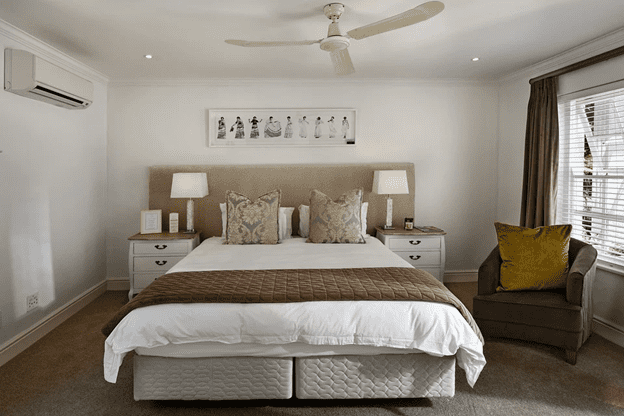We spend over a third of our lives in bed. That’s why it is so important to maintain the air quality in the bedroom, or where ever you sleep. The air you breathe at night has a profound effect on your sleep, concentration, and mood during the day. If you have asthma or allergies, poor indoor air quality can exacerbate symptoms and lead to more frequent flare-ups.
Asthma affects 7% of children worldwide and triggers an attack every 10 seconds with 3,000 deaths per year. It’s also estimated that approximately 1-3% of all adults suffer from asthma as well. And since one out of five people suffers from some type of allergy, it makes sense that we would want to take care not only of ourselves but of those who are most susceptible.
Many other airborne pathogens can influence our health such as viruses, bacteria, and mold. In this article, we will explore some ways to ensure good air quality in your bedroom so that you can sleep soundly and wake up refreshed.

Table of Contents
TogglePrevention
The most important thing you can do to keep the air in your bedroom clean is to prevent pollutants from getting in the first place. Keep your bedroom clean and free of clutter. In addition to that, it is advisable to have a good HVAC system in place. The heating, ventilation, and air conditioning system will keep the air circulating and help to remove any pollutants that may be present.
Stale air can also be a problem, so make sure to have your bedroom well ventilated. Spaces that lack proper ventilation can contain air particles as a potential transmission vector for C.Diff, MRSA, or other airborne infections. Clostridium Difficile is a bacteria that can cause diarrhea, and MRSA is a type of staph infection that is resistant to many antibiotics. Both of these infections can be deadly, so it is important to make sure that your bedroom is well ventilated.
Avoid creating pollutants
In addition to preventing pollutants from getting in, you also want to make sure that you are not creating any yourself.? Smoking, using harsh chemical cleaners, and painting are all activities that can release harmful chemicals into the air. If you must do any of these things, make sure to do them outside or in a well-ventilated area. It is best to avoid doing any strenuous activity in the bedroom altogether. This will help to keep the air clean and free of any potential irritants.
Purify the air
If you are not able to prevent pollutants from getting into your bedroom, then you will want to purify the air as much as possible. There are many different types of air purifiers on the market, and all of them work differently. Some use activated carbon filters to remove gasses and odors from the air, while others use ozone to kill bacteria and viruses. There are also air purifiers that use ultraviolet light to kill mold and other allergens.
Whichever type of air purifier you choose, make sure that it is certified by the Association of Home Appliance Manufacturers (AHAM). This will ensure that you are getting a quality product that will do its job effectively.
Improve your sleep hygiene
One final way to improve the air quality in your bedroom is to practice good sleep hygiene. This means making sure that your sleeping environment is clean and comfortable. The sheets and pillowcases should be washed frequently, and the mattress should be vacuumed regularly. In addition, you want to make sure that the temperature in the room is not too hot or too cold. The ideal temperature for sleeping is between 60 and 67 degrees Fahrenheit.
Should you have plants in the room?
Plants are often touted as helping purify the air, but this is not necessarily the case. While some plants may help to remove certain pollutants from the air, they can also release mold spores and other allergens into the room. If you have plants in your bedroom, make sure to keep them clean and free of dust. It is also a good idea to keep them away from the bed so that you are not breathing in any irritants while you sleep.

There are many things you can do to ensure good air quality in your bedroom. The most important thing is to prevent pollutants from getting in the first place. Keep your bedroom clean and free of clutter, and make sure to have a good HVAC system in place. In addition, you want to avoid creating any pollutants yourself and purify the air as much as possible. Finally, practice good sleep hygiene to create a comfortable and inviting space for rest.








